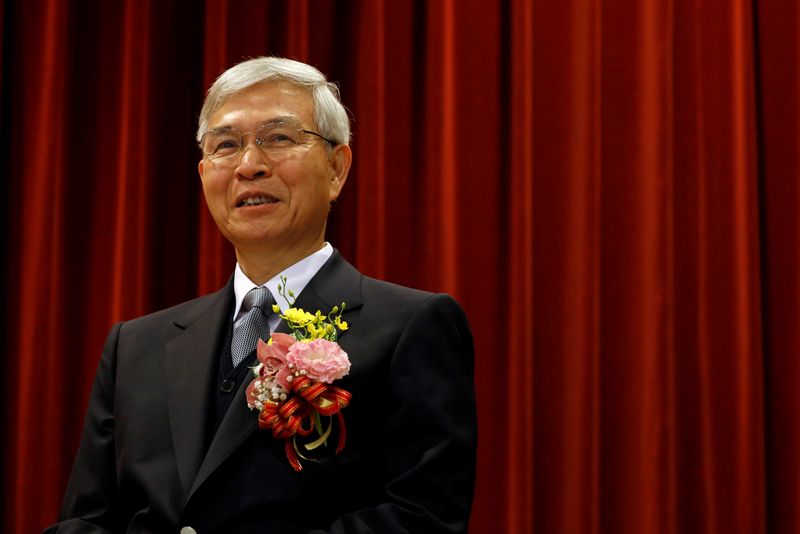TAIPEI (Reuters) - The head of Taiwan's central bank said on Thursday that he doubted that U.S. President-elect Donald Trump's new administration would penalise Taiwan given the island's central role in the semiconductor industry.
Trump unnerved Taiwan on the campaign trail by accusing it of stealing American chip business. Trump also proposed a 10% tariff on all U.S. imports and a 60% levy on Chinese-made products.
Taking lawmaker questions, Taiwan central bank governor Yang Chin-long said that the semiconductors and other tech products manufactured on the island are materials of such strategic importance that their supply chain should not be disrupted. "Chips and information and telecommunications products are what the U.S. needs most," Yang said. "I don't think the United States would penalise Taiwan."
Taiwan-U.S. cooperation on chips is beneficial for both, he added.
"They design them and we make them," Yang said.
In his first term as president, Trump imposed import tariffs on China but spared Taiwan. Taiwan, home to tech giants such as chip manufacturer TSMC, is a major supplier to global titans like Apple (NASDAQ:AAPL) and Nvidia and is considered a bellwether of world technology demand.
However the governor also said that if new tariffs proposed by Trump were to go into effect, it would have an impact on Taiwan's export-dependent economy, a risk the central bank flagged in a report to parliament on Wednesday.
Taiwan also runs a sizable trade surplus with the United States, which Yang said was expected to hit $50 billion this year.
Yang said that apart from buying more goods from the United States, TSMC's investment in the U.S. could also help address the trade imbalance.

TSMC is spending $65 billion on new factories in the U.S. state of Arizona.
The United States is Chinese-claimed Taiwan's most important international backer and arms supplier, even in the absence of formal diplomatic relations.